PROGRAM SCHEDULE 2007-2008
21st Season
| Sun | Sep | 2 | 2:00 | Orff: Carmina Burana on DVD
How many times have you heard a soundtrack to a film or TV commercial in which a chorus shouts out the words “O Fortuna!”? These are the opening moments from Carl Orff's 1937 cantata Carmina Burana. Little did Orff imagine that at least part of his composition would become one of the most recognized selections of choral music.
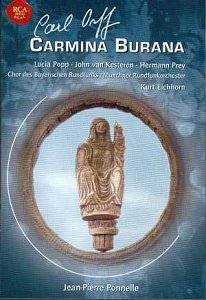
For the opening of its 86th season, the Toronto Symphony Orchestra has chosen this exciting celebration of the joys and sorrows of life, love, spring, drinking, sex, and gambling. As an introduction to this work which sprakles with inventive percussion and melodies, we will sample several different recordings including those of Andre Previn, Michel Plasson, and Kurt Sanderling. Orff imagined this piece to be staged -- as indicated by the full title “Carmina Burana: Secular songs for singers and choruses to be sung together with instruments and magic images”. As a finale, we will have the chance to enjoy a DVD of a fully staged film production from 1975 directed by Jean-Pierre Ponnelle, in which sexy baritone Hermann Prey and angelic soprano Lucia Popp wrestle together in a classic battle of the sexes.
(ta/ta&js)
|
| Sun | Sep | 23 | 2:00 | Ravel: Daphnis et Chloé
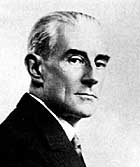 Ancient Greek myths have been a rich source of inspiration for artists of all kinds. In 1909, Sergei Diaghilev of Les Ballets Russe commissioned Maurice Ravel to compose the score for a ballet to be choreographed by Mikhail Fokine and danced by Nijinsky. It was to be based on a myth about a romance between a shepherd and shepherdess on the Isle of Lesbos. In 1911, Ravel produced the score which we know today as Daphnis and Chloé Ancient Greek myths have been a rich source of inspiration for artists of all kinds. In 1909, Sergei Diaghilev of Les Ballets Russe commissioned Maurice Ravel to compose the score for a ballet to be choreographed by Mikhail Fokine and danced by Nijinsky. It was to be based on a myth about a romance between a shepherd and shepherdess on the Isle of Lesbos. In 1911, Ravel produced the score which we know today as Daphnis and Chloé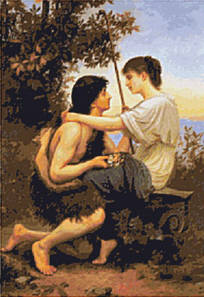 and which he later re-worked as two suites. This was the same year that Bartok wrote Bluebeard's Castle, Debussy wrote Le Martyre de Saint-Sebastien, Stravinski wrote Petrushka, and Richard Strauss wrote Der Rosenkavalier. and which he later re-worked as two suites. This was the same year that Bartok wrote Bluebeard's Castle, Debussy wrote Le Martyre de Saint-Sebastien, Stravinski wrote Petrushka, and Richard Strauss wrote Der Rosenkavalier.
Daphnis and Chloé, the ballet, premiered in 1912. The production was a mess because of problems between the musicians and dancers and between Ravel, Fokine, and Diaghilev. The whole business so exhausted and upset Ravel that he “retired” for a year to recover his health.

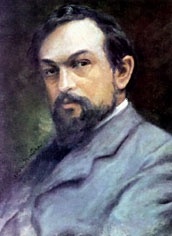 We will listen to the complete score in one of the classic performances of Daphnis and Chloé and, for comparison and pleasure, to other ballet scores composed by some of Ravel’s contemporaries, Claude Debussy (Jeux) and Albert Roussel (Bacchus et Ariane).
We will listen to the complete score in one of the classic performances of Daphnis and Chloé and, for comparison and pleasure, to other ballet scores composed by some of Ravel’s contemporaries, Claude Debussy (Jeux) and Albert Roussel (Bacchus et Ariane).
(jg/js&ta)
|
| Sun | Oct | 7 | 2:00 | War & Music, Part 4
In Part Four of ‘Wars and Music’, I invite you to join me in remembering the victims of war…
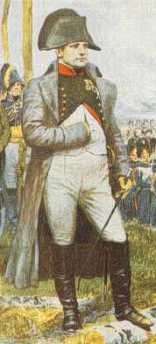 We start our journey in 1796, with Haydn, against the backdrop of the disastrous war between Napoleon and the Austrians. We will hear the ‘demand’ for peace in the Missa in tempore belli.
We start our journey in 1796, with Haydn, against the backdrop of the disastrous war between Napoleon and the Austrians. We will hear the ‘demand’ for peace in the Missa in tempore belli.
We will then travel forward in time to the early 1960s where we find a young Krzysztof Penderecki at work. Threnos is a work dedicated to the victims of Hiroshima and depicts the horror of nuclear war!
The contemplation of the atrocities committed during the war in Kosovo moved Bramwell Tovey to compose his Requiem for a charred skull. This work is a setting of the traditional Requiem Mass for the Dead. We will have the opportunity to listen to this work in its entirety.
We will end our journey in St. Petersburg. It was here, on March 26, 1824, that Beethoven’s Missa Solemnis received its first performance. We will join in the prayer for peace - both inward and outward.
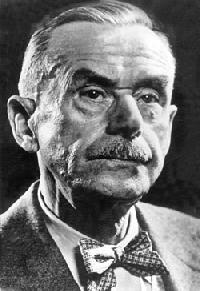
““War is a cowardly escape from the problems of peace.”
Thomas Mann (1875-1955)
(da/ta&js)
[Discography]
|
| Sun | Nov | 4 | 2:00 | Mozart: The Marriage of Figaro
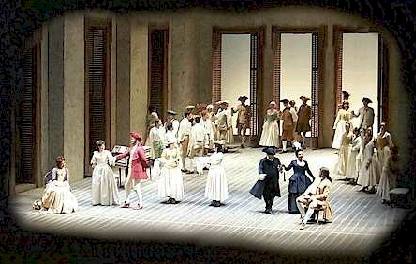
Based on Beaumarchais' revolutionary play, Mozart's opera The Marriage of Figaro is a revolutionary work in every respect: not only in its subject matter and its social content; but also in the way Mozart revolutionized the art form itself: just as with the social conventions in the plot, the artistic conventions of the opera are turned on the head. Mozart makes a clean break with the stop-and-go form of alternating recitatives and da. capo arias and creates the first modern musical drama, in the sense that both plot and character development are borne out in the music. The orchestra is essentially an additional character, providing a running commentary, as it were, to the action on stage; often revealing to the audience what's going on underneath the surface. Finally, and most important, all characters are fully characterized musically, and as they develop and transform, so does the music. And it is Mozart's genius for musical characterization that makes The Marriage of Figaro a compelling human drama.
(jn/bs)
|
| Fri | Dec | 14 | 6:30 |  Christmas Party Christmas Party
Each year, the Classical Music Club Toronto holds a Christmas party for members and their guests. We hold the party to a FRIDAY night because Saturdays in December tend to be fully booked for many of the Classical Music Club Toronto members.
()
|
| Sun | Jan | 20 | 2:00 | Mozart: Early Symphonies
Ah! Mozart. A composer whose abilities began at a very early age. But, while we may hear Symphony 40 or 38 played quite often, what about Symphony 1, 2 or 3? Then, too, what about the lost symphonies? To be able to hear these lesser performed works, I went to the complete set of Mozart symphonies, a major project Sir Charles Mackerras did for Telarc records in the 1980s with the Prague Chamber Orchestra. Listen to some of these works and decide if you think they should be enjoyed more often. In the second part of the presentation, I'll be showing a 50 minute documentary on the life of W.A. Mozart.
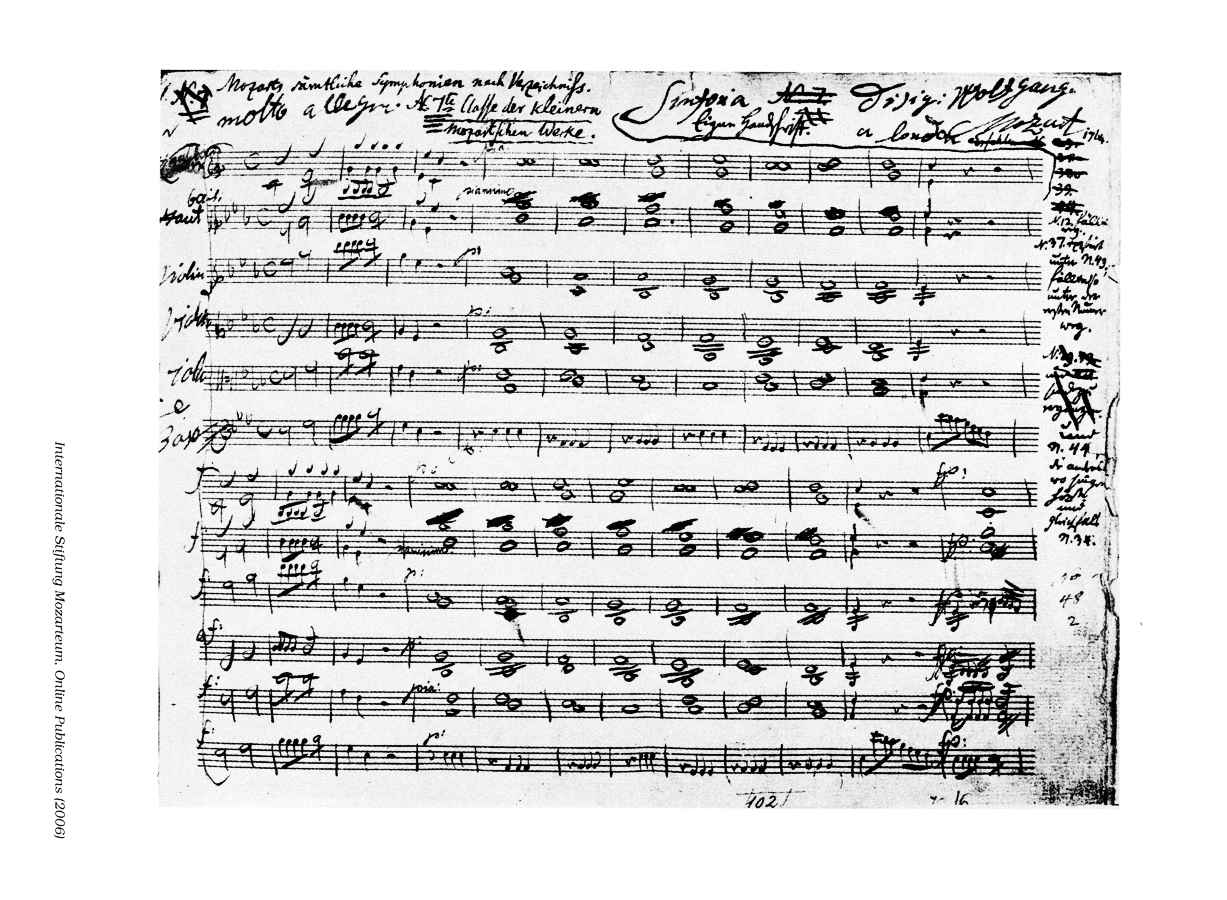
(bc/bs)
|
| Sun | Feb | 24 | 2:00 |
Mahler: Symphony No. 4
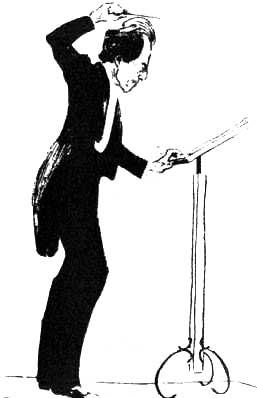 The collection of folk poetry “Des Knaben Wunderhorn” (“The Youth's Magic Horn”), published between 1805 and 1808 was a defining moment in the development of the German Romantic movement. It influenced many poets of that and of thge following generation, and just about every major 19th century German composer set some of these poems to music. But no other composer identified himself as much with these poems as
Gustav Mahler, who spent nearly half his creative life, and nearly half his artistic output under the influence of the anthology, setting to music a total of 23 poems, and incorporating some of them into his first four symphonies, collectively known as the "Wunderhorn" symphonies. The collection of folk poetry “Des Knaben Wunderhorn” (“The Youth's Magic Horn”), published between 1805 and 1808 was a defining moment in the development of the German Romantic movement. It influenced many poets of that and of thge following generation, and just about every major 19th century German composer set some of these poems to music. But no other composer identified himself as much with these poems as
Gustav Mahler, who spent nearly half his creative life, and nearly half his artistic output under the influence of the anthology, setting to music a total of 23 poems, and incorporating some of them into his first four symphonies, collectively known as the "Wunderhorn" symphonies.
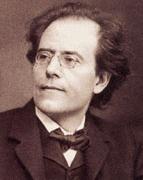 Mahler's Fourth Symphony incorporates his setting of the poem “Das himmlische Leben” (“The Heavenly Life”) - a child's vision of Paradise - as its concluding movement. The symphony's subtitle is “Humoreke” and it is Mahler's sunniest and most light-hearted symphony, and also a humorous tribute to the classical form.
Mahler's Fourth Symphony incorporates his setting of the poem “Das himmlische Leben” (“The Heavenly Life”) - a child's vision of Paradise - as its concluding movement. The symphony's subtitle is “Humoreke” and it is Mahler's sunniest and most light-hearted symphony, and also a humorous tribute to the classical form.
(jn/ta&js)
|
| Sun | Mar | 16 | 2:00 |
Edward Elgar
Although the 150th anniversary of Edward Elgar's birth was celebrated in
2007, it is still timely to consider the life and work of one who is
considered by many to be the quintessential composer of the later years
of the British Empire. His ceremonial music (such as the Coronation Ode
and the Pomp and Circumstances Marches of 1901) is thought to be
uniquely "British" - in fact, both these works feature the music of the
patriotic hymn "Land of Hope and Glory". In contrast, his more serious
works (for example, the symphonies and concertos) were in his own
lifetime highly admired by his European musical contemporaries who
considered him one of their number.
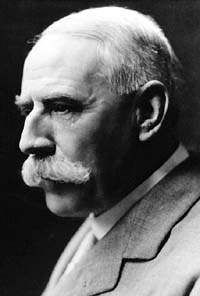
I've always been drawn to British composers such Holst, Vaughan
Williams, and Elgar. There's something in their music that speaks to me
at a very fundamental level about regret for a long-lost time in
England's history as well as a way of evoking the British countryside
that I find very appealing. And, the ceremonial aspects appeal to my
ongoing fascination with all things British and royal. Elgar, among the
three, moves me in the same way that the music of Strauss and Wagner
does.
The program will take a look at some of his more familiar scores (such
as the Enigma Variaitions)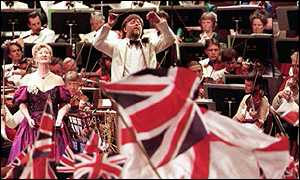 as well areas for which he is not so well
known but which he himself considered some of his best work (for
example, his piano music and chamber works). Rounding out the program
will be an excerpt from a BBC documentary about the Enigma Variations
with Sir Andrew Davis as commentator.
as well areas for which he is not so well
known but which he himself considered some of his best work (for
example, his piano music and chamber works). Rounding out the program
will be an excerpt from a BBC documentary about the Enigma Variations
with Sir Andrew Davis as commentator.
(js/ta&js)
|
| Sun | Apr | 6 | 2:00 | Messiaen: Turangalîla Symphony
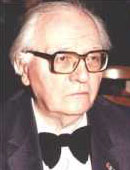
The Turangalila Symphony is a vast, ten-movement work for piano, ondes
martenot (an electronic keyboard instrument capable of sustaining notes and
produce glissandos) and orchestra. Messiaen called it a love song, a hymn to
joy -- "love that is fatal, irresistible, transcending everything,
supressing everything outside itself; joy that is superhuman, overflowing,
blinding, unlimited."
NOTE: This work is to be performed by the Toronto Symphony Orchestra in April and will be recorded by the CBC for future broadcast.
Wed. Apr. 16 at 8:00 pm
Thu. Apr. 17 at 8:00 pm
$123, $102, $87, $77, $67, $51, $43, $36
Direct link to the TSO website for Turangalîla Symphony.
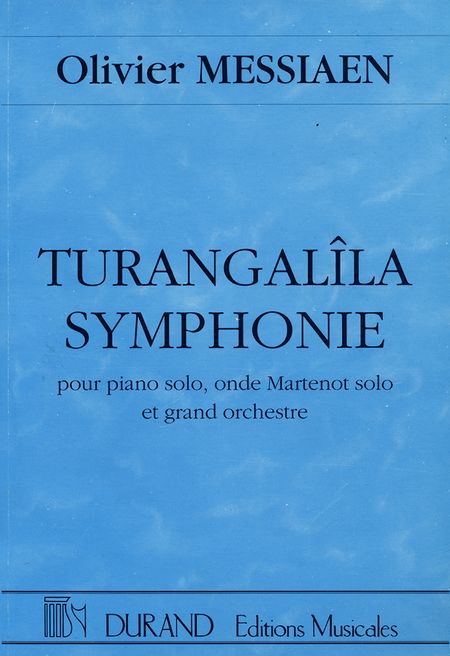
(ta/bs)
|
| Sun | May | 18 | 2:00 | Lieder Recital: Flowers & Water
|
It is May and spring is in full bloom - so what more appropriate subject then water and flowers? But, these are not symbols of spring alone: humans have always been fascinated with flowers and water, and endowed them with many - and often contrasting - symbolic values. In the case of flowers, every culture has developed a “language of flowers”, which in some cases has been developed and refined to express even the most abstract ideas. It is therefore not surprising that water and flowers appear prominently in poetry, and hence also in song - from folk and popular music to art song. |
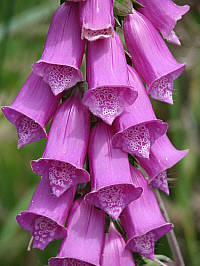 |
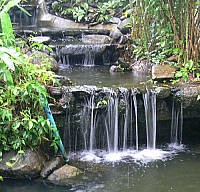 |
(jn/ta&js)
[Discography]
|
| Sun | Jun | 1 | 2:00 |
Lorraine Hunt Lieberson
Rarely in the history of vocal music has an artist so captured the emotions and admiration of the public. From her early work with Peter Sellars in 1985 to her death at the age of 52 in 2006, American mezzo-soprano Lorraine Hunt Lieberson was universally 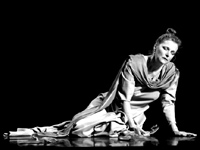 acclaimed by critics and audiences alike for her courageous, insightful and deeply affecting artistry. As Anthony Tommasini declared in his July 5, 2006 obituary in The New York Times: “Though her work seldom drew less than raves from critics, her singing eluded description. Despite the gleaming richness of her sound, her voice somehow conveyed poignant intimacy. Although she paid scrupulous attention to rhythm, phrasing and text, she came across as utterly spontaneous. Her person disappeared into her performances. And yet in a Handel aria, a Britten cantata, or a song by her husband, she could be so revealing you sometimes wanted to avert your eyes for fear of intruding.” acclaimed by critics and audiences alike for her courageous, insightful and deeply affecting artistry. As Anthony Tommasini declared in his July 5, 2006 obituary in The New York Times: “Though her work seldom drew less than raves from critics, her singing eluded description. Despite the gleaming richness of her sound, her voice somehow conveyed poignant intimacy. Although she paid scrupulous attention to rhythm, phrasing and text, she came across as utterly spontaneous. Her person disappeared into her performances. And yet in a Handel aria, a Britten cantata, or a song by her husband, she could be so revealing you sometimes wanted to avert your eyes for fear of intruding.”
Her choice of roles and repertory were examples of integrity and intelligence and she was a champion of Baroque operas and of living composers. Preferring to work closely with directors and ensembles who shared her artistic aims, she made many impressive appearances at festivals like Glyndebourne in England and Aix-en-Provence in France.
The program will consist of selected CD recordings as well as DVD excerpts.
(pc/ta&js)
[Discography]
|
| Sun | Jun | 29 | All day | Pride Day CMC Booth
|
| | | |
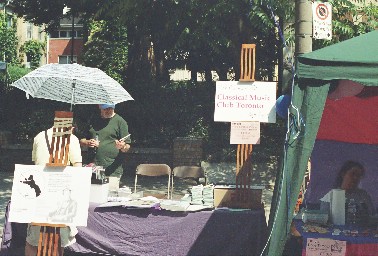
Drop by our club´s booth on Pride Day, June 29, 2008
We´re located with the community organisations
Club members will be there to answer your questions
And we will have some previously enjoyed CDs for sale.
Pride Toronto Official Web site
|
| Sat | Jul | 12 | 7:00 |
Friedrich Gulda
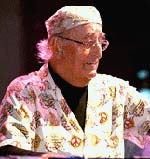
PROGRAM DESCRIPTION NOT AVAILABLE
(ta/bs)
|
| Sat | Aug | 9 | 7:00 |
R. Strauss: Ariadne auf Naxos
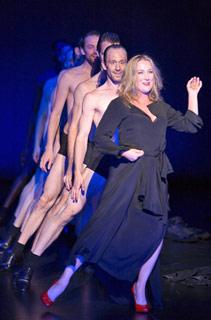 Richard Strauss’ Ariadne auf Naxos has many faces. It embraces many conflicting elements: chamber opera vs. expanded grand spectacle, domestic vs. universal, and aristocratic snobbism vs. the vulgar energy of the lower classes. Composed in 1912 and originally intended as a short epilogue to be given after a performance of Molière’s play Le Bourgeois gentilhomme, in 1916 Ariadne took on a life of its own. This delightful composition for a chamber-sized orchestra and a cast of 17 singers and actors consists of a prologue followed by a performance of an ‘opera within an opera’. Richard Strauss’ Ariadne auf Naxos has many faces. It embraces many conflicting elements: chamber opera vs. expanded grand spectacle, domestic vs. universal, and aristocratic snobbism vs. the vulgar energy of the lower classes. Composed in 1912 and originally intended as a short epilogue to be given after a performance of Molière’s play Le Bourgeois gentilhomme, in 1916 Ariadne took on a life of its own. This delightful composition for a chamber-sized orchestra and a cast of 17 singers and actors consists of a prologue followed by a performance of an ‘opera within an opera’.
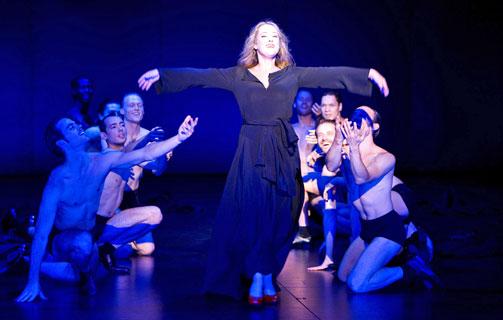 On July 24, the Bavarian National Opera in Munich premiered their new production of Ariadne with strong Canadian/Torontonian content: Adrianne Piezconca singing the title role, Robert Carsen as the director, and Kent Nagano (Music Director of the Montreal Symphony) on the podium. Thanks to internet radio, we can share with you over-the-top superstar Diana Damrau singing Zerbinetta’s famous, extreme-coloratura aria ‘Grossmächtige Prinzessin!’ We urge you to
visit Youtube to see her
in that particular scene surrounded by male dancers in tight shorts looking like a segment from a Chippendales review. On July 24, the Bavarian National Opera in Munich premiered their new production of Ariadne with strong Canadian/Torontonian content: Adrianne Piezconca singing the title role, Robert Carsen as the director, and Kent Nagano (Music Director of the Montreal Symphony) on the podium. Thanks to internet radio, we can share with you over-the-top superstar Diana Damrau singing Zerbinetta’s famous, extreme-coloratura aria ‘Grossmächtige Prinzessin!’ We urge you to
visit Youtube to see her
in that particular scene surrounded by male dancers in tight shorts looking like a segment from a Chippendales review.
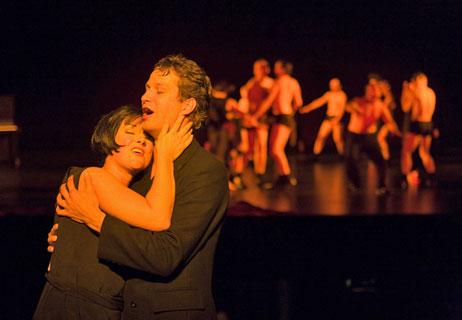 And in our own home town the Toronto Summer Music Festival this year is offering a rare chance to see Ariadne in performance (August 14-17). The MacMillan Theatre at the U. of T. Faculty of Music will provide the appropriate intimate surroundings. And in our own home town the Toronto Summer Music Festival this year is offering a rare chance to see Ariadne in performance (August 14-17). The MacMillan Theatre at the U. of T. Faculty of Music will provide the appropriate intimate surroundings.
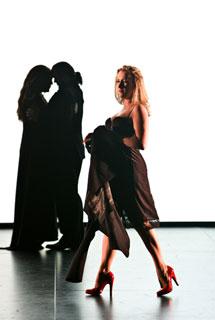 Through selections from a recent broadcast, famous audio recordings, and scenes from the few available DVDs, our program will introduce you to the charm and diversity of this early 20th century masterwork. Through selections from a recent broadcast, famous audio recordings, and scenes from the few available DVDs, our program will introduce you to the charm and diversity of this early 20th century masterwork.
Spend a summer evening on the island of Naxos with the abandoned princess Ariadne, her attendant nymphs, and a troupe of commedia dell’arte players who just can’t stop interrupting the action plus a surprise visit from the handsome Bacchus, god of wine.
(ta&js/ta&js)
|
| Sat | Aug | 23 | 7:00 |
Bring your own recording

Club members are asked to bring along a recording of their own choice. To allow everyone to participate, please limit your selection to about 10 minutes maximum. Media players available are CD and DVD.
(*/bs)
|
|

